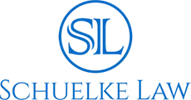
Acute Traumatic Brain Injury Victims May Have a Greater Level of Consciousness Than Once Thought


SHARE
FULL STORY
SHARE
Austin, TX (Law Firm Newswire) August 27, 2019 – Some traumatic brain injury (TBI) victims retain what is referred to as covert consciousness, but how do medical professionals and family members know if a patient is responsive or not?
The New England Journal of Medicine has just released a new study that indicates that about 15 percent of TBI patients are responding to verbal commands “in their brains” even though there are no external signs that they are doing so.
The study recorded brain responses in acute TBI patients with a specialized computer analysis program applied to EEG recordings. According to researchers, patients that do show activity are “four times more likely to achieve partial independence over the next year with rehabilitation, compared to patients with no activity.” The research took into consideration EEG results from 104 patients in a neurological unit at Columbia University’s neurological ICU. The patients had head trauma resulting from intracranial bleeding, trauma and/or heart attacks.
The research opens new doors to treatment possibilities that were once considered nearly impossible. Not only does it give hope for better medical diagnostics and treatment options, but it also holds the potential to change how TBI injury accidents are treated when a family files a lawsuit. The findings could also change the value of the compensation awarded by a judge, jury or during a settlement for treatment to help a patient recover from a comatose or seemingly vegetative state.
According to researchers, roughly 15 percent of the patients who did not respond externally to commands did have brain activation in response to commands. While that is good news, the paper’s lead author, Dr. Jan Claassen, indicates: “It suggests that there’s some remnant of consciousness there. However, we don’t know if the patients really understood what we were saying. We only know the brain reacted.”
The idea that coma patients can hear and understand what doctors, nurses and love ones say to them is not new. New York’s Weill Cornell Medical College’s Dr. Nicholas Schiff says: “…understanding that, as the brain recovers, one in seven people could be conscious and aware, very much aware, of what’s being said about them, and that this applies every day, in every ICU. — it’s gigantic.”
We know very little about the brain and impaired consciousness. If there were 1,700 patients in an apparent vegetative state, fifteen percent is 255 people who might be conscious.
“If you or a loved one are struggling with a TBI, possibly acquired after an accident, we would be honored to hear your story and help you to understand what your legal rights are in this situation. My door is open for you,” said Austin wrongful death attorney Brooks Schuelke.
Learn more at http://www.civtrial.com
